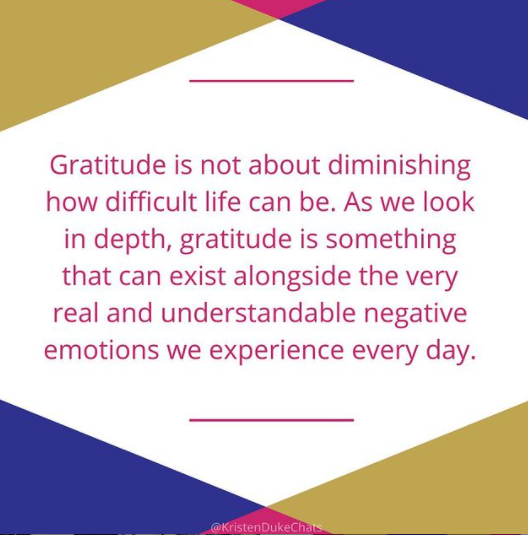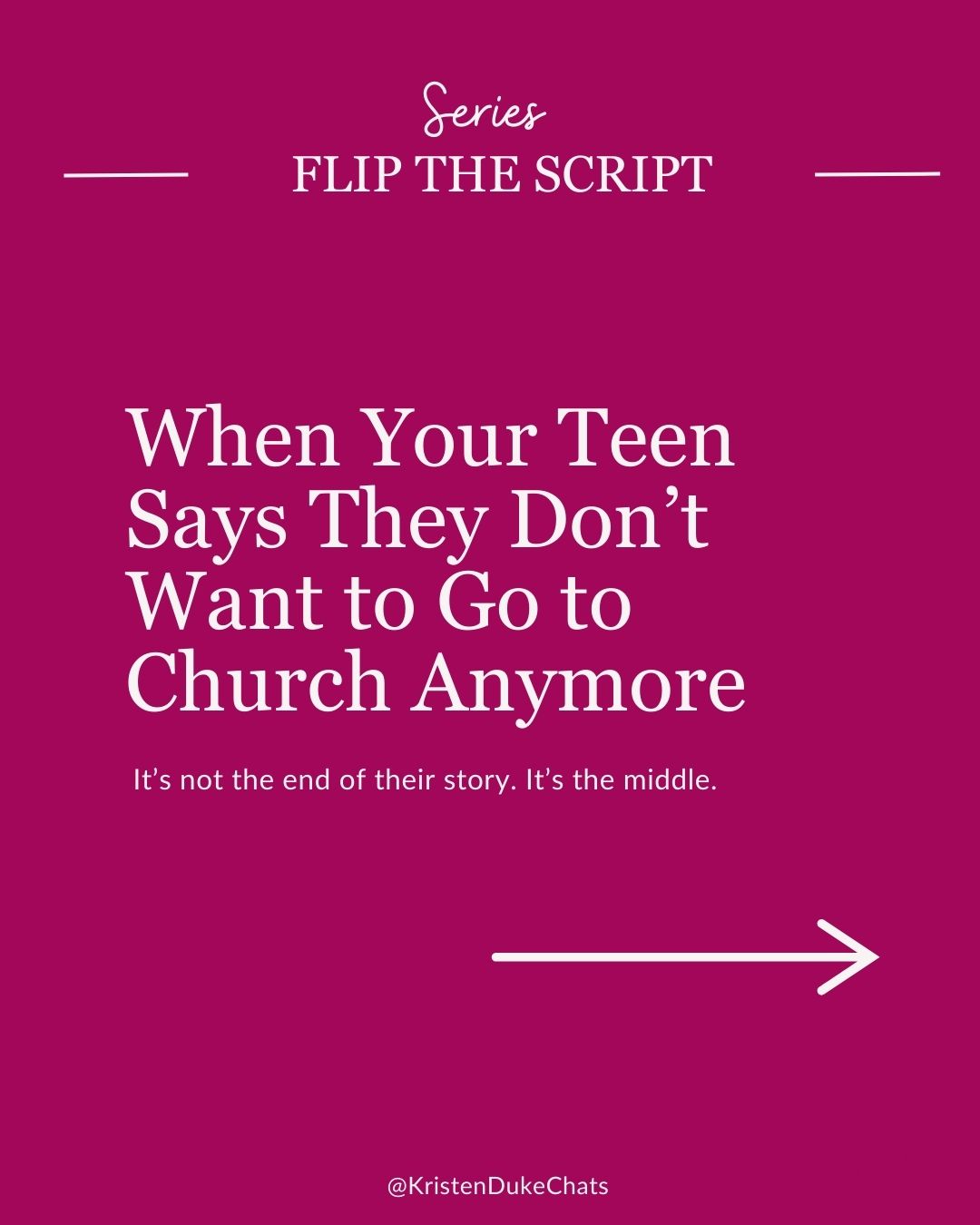Can we remain grateful even during hard times?

I read something online the other day that said something along the lines that we need to be sensitive to those people who are experiencing hard things right now, and that those of us flooding the Internet with positive grateful expressions need to be mindful of that.
Of course we always need to be mindful of those who are struggling, but does that mean we can’t share our gratitude and joy that we experience?
In fact, the whole point of being grateful in order to heal is to look for those silver linings, those tender mercies, *in spite of* the difficult challenges we are experiencing.
I think some people intentionally hide the good things because they don’t want to hurt others, but I submit that those who are hurting have things to be grateful for as well. (We are all hurting in some way). In fact, that is how we heal from pain and trauma, finding that gratitude. (continued discussion in stories about a trigger for me)
Quote from Judy Moskowitz, PhD
Here’s what our community had to say:
- “I’m focusing more on intangibles and also not painting the perfect picture when I do post about my family and other things. I know when I’ve struggled greatly it’s challenging because social media is about curating a perfect image and it’s hard when you’re struggling and in a pit to see that. I realize that’s more my issue than theirs but I think it’s good to think of others. I had a really stark contrast this weekend of two family members posting. I won’t share details but it may have been good for the one family member to get sensitive to the other. I think diving deep into our gratitude and even posting about the not so rosy moments and sharing that things aren’t perfect but we are grateful for the good is healthy.”
- “My husband and I were just talking about this last night on our walk. If I’m thankful for something and you don’t have it, I shouldn’t be shamed for it. My goodness! (I saw a couple of things online asking these lines, and they bothered me.) The whole point is that EVERYONE has SOMETHING to be thankful for and we’re all happy when we focus on those things.”
- “I don’t really know how to say this so it makes sense but I’ll try. I think the issue is that it’s SO much and becomes overwhelming. Being divorced, after seeing the thousandth post about an amazing spouse it became a painful reminder that I don’t have that blessing even though I’m so happy for others. And as much as I love seeing family photos, it was SO much and made me sensitive to what those without kids may feel. The same as all the posts on Mother’s Day or Father’s Day Or millions of vacation photos when you can’t go on one. And so on… Of course it’s important to be grateful and to be happy for others and be sensitive to others. Your post may be fine but by post 14578 it’s too much. I wouldn’t post about how thankful I am for food and show photos of huge meals to people starving. Or my great health to a palliative ward. And have everyone I know show them too. Not that I’m not thankful for those things but I can also be sensitive to their lives and what they may not have at that moment and realize my post may be fine but not when it’s the millionth one.”
- “I love that you remind that this isn’t just something to think about this week. I hope lessons of mindfulness will carry with us always. Gratitude with a little nuance – especially in sensitive areas of life like marriage, parenting, and families – never hurt anyone.”
- “I’ve been choosing to not read every single grateful post in my social media feeds. He said I should find things I’m grateful for, not read about what everyone else shares and feel bad about what I don’t have. So that’s what I’m doing.”
- “I think you can do both – you can express gratitude AND be mindful of your words and how they effect others. If you had a friend who just lost their spouse, would you constantly gush to them how wonderful it is to be married? Would you go into great detail and paint a super rosy picture and never acknowledge their loss? Maybe not. It’s not that you can’t be grateful for your spouse in that moment or even express it – but how would you change your words knowing others are feeling pain? That’s a good lesson all the time. We don’t know everyone’s pain so we can’t be held to that knowledge, but where you know others walk with certain griefs it costs us nothing to be mindful, to acknowledge that fact, and let it shape (note: not prevent) how we express our gratitude. Truthfully: I know all my friends that have decent family lives are grateful for their families. I’m looking forward to now seeing the unique gratitudes, the things that are odd, overlooked, or interesting:)”
- “I love that you addressed this. I saw that same quote and it just didn’t sit right with me. I shouldn’t be made to feel shameful because I am grateful for something good in my life. Compassion always, but that shouldn’t diminish gratitude”
- “Yes! Sometimes gratitude can be used as a denial strategy. To minimize what we are going through I love that you highlight there is room for compassion for our trials and gratitude. One doesn’t need to take from the other.”
- “I think it’s possible to share daily gratitudes, even things you have and are grateful for that others may not have, in a kind, thankful, sincere, mindful and thoughtful way. I think it’s also possible for those of us who have had significant traumas and/or losses in our lives that maybe don’t have the things people are posting their gratitude about to be happy for others that they have those things…. and to recognize our loss and sadness, but not resent or begrudge someone else.”
- “Thank you for this, I too have noticed some saying how hurtful it has been to them. For me it’s been incredibly uplifting to focus on the good and seeing others doing the same.”
- “And I know sometimes when I’m in a sad mood or hurting about something, having a friend point me to something positive helps so very much. Not to discount my pain but to gently remind me that there is good”
- “There is a fine line between being sensitive to other people, and taking responsibility for their emotions. We can only be responsible for ours. You explained this great in the post!”
- “Ok this makes me so happy that I only follow a handful of people and I haven’t seen others attempting to censor gratitude. Makes me embarrassed for mankind. Some podcasters and influencers run their “business” (is that the right word?) like an MLM, where the majority of their followers are simply other podcasters and influencers, so jumping on bandwagons is more important than authenticity. You are an unapologetic light, Kristen. Your feed is uplifting and I don’t think any one of your fans could claim you’re fake in anyway. People seem to think if you’re positive, you’re not being real.”
- “Thank you for posting this today!!!! Last night I saw a friend say he thought this band wagon of gratitude was so dismissive to all the sorrow and suffering in the world right now. I couldnt believe it! I was so sad for him and others who don’t understand showing gratitude during these times is exactly what helps! If we only focus on how bad it is, we will quickly fall into despair and hopelessness. Being thankful and seeing the good in your life is so therapeutic. But his comment has bothered me all night and today because I’m so sad people are even attacking gratitude as a bad, selfish thing. This post was what I needed!”
- “Amen!!! Yes all over. I read something similar and we have been having this very chat. Everyone can benefit from counting blessings, but especially those hurting.”
- “Isn’t it just about checking our intentions before we post? If we’re trying to brag, it’ll come off like bragging. But if it’s sincere, and someone is offended, I don’t think that it’s our fault. We can be mindful of others feelings, but we aren’t responsible for them.”




